Recently, Lucton School Chongqing successfully completed the first International EPQ programme (International Extended Project Qualification). From life sciences to solar energy and e-sports, the students embarked on a journey of discovery on and off campus. Committed to practical learning, they conducted experiments using resources, demonstrating their dedication to rigorous experimentation and the pursuit of excellence in their chosen fields.
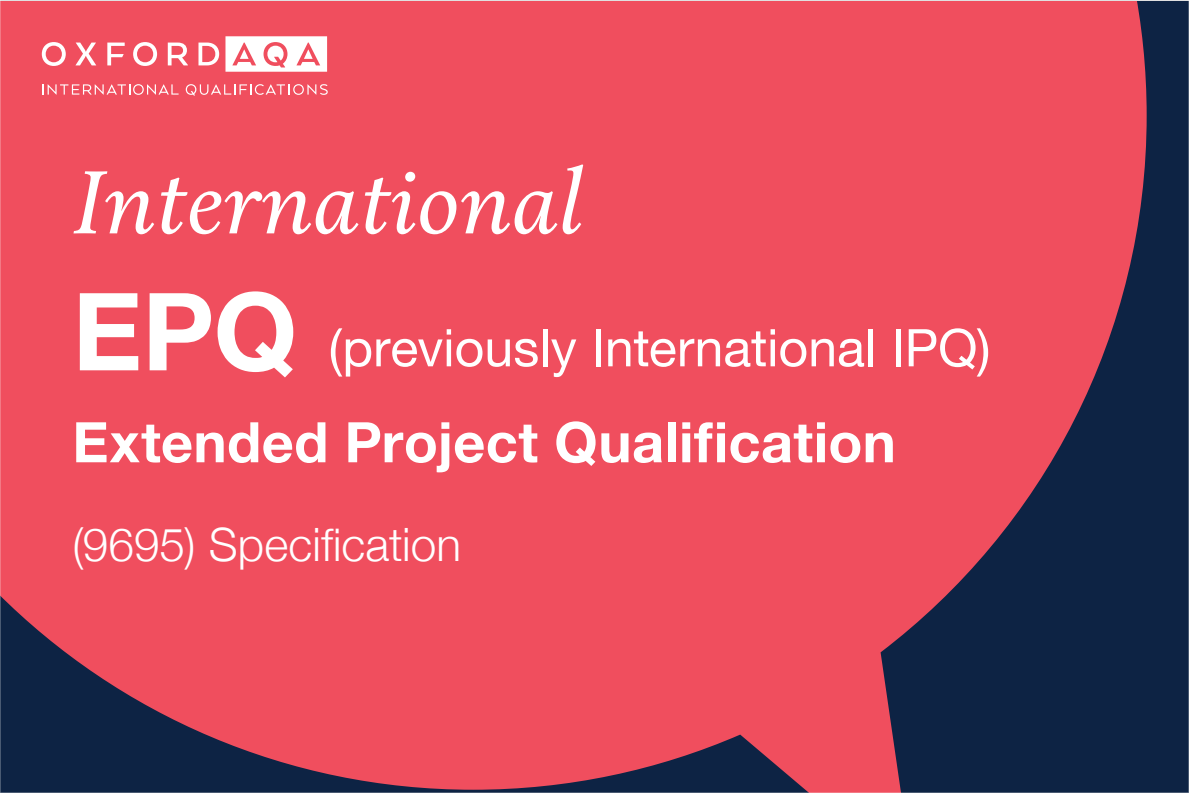
International EPQ is a research-based qualification set by Oxford AQA. The International EPQ is designed to develop students' independent research skills through project-based learning and emphasises the importance of students choosing a subject direction from their own interests and conducting research under the guidance of a tutor. Students who have achieved this qualification will be awarded a maximum of 28 UCAS Tariff Points, which will help them gain priority for admission to institutions with the same standardised exams.
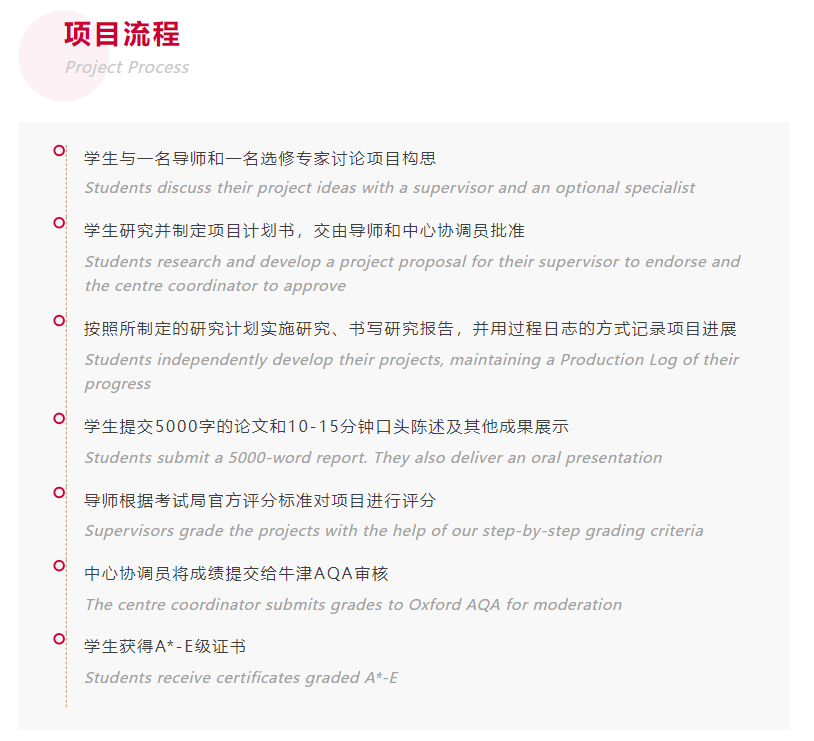
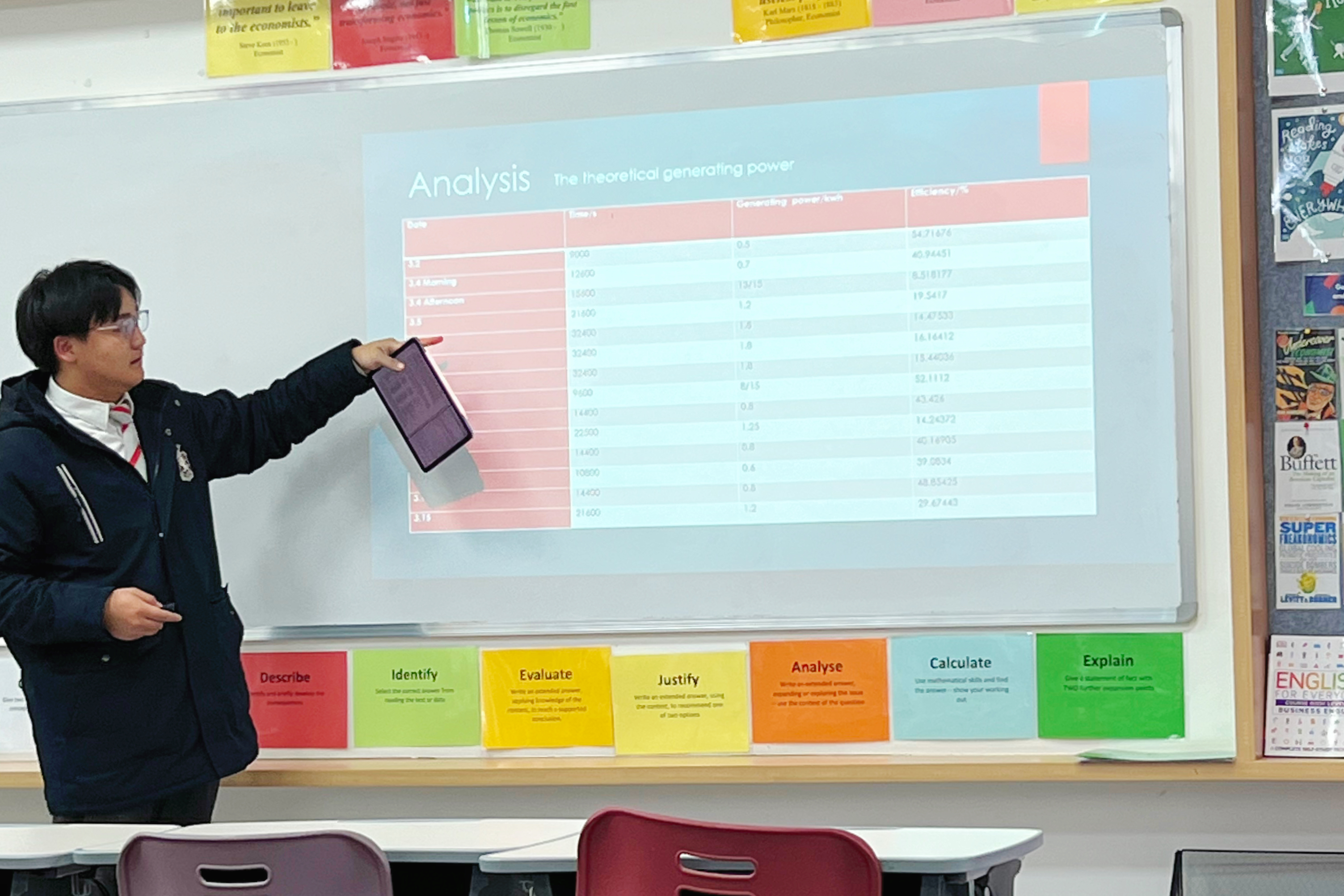
George C's research project is about the application of solar energy. His project attempts to answer the following research questions:
1. Given the specific weather and geographical conditions of Lucton School Chongqing, whether it is possible to implement solar power as an energy source.
2. Whether it is economically feasible and beneficial for Lucton School Chongqing to replace the electricity from the national grid—powered by coal—with electricity powered with solar panels.
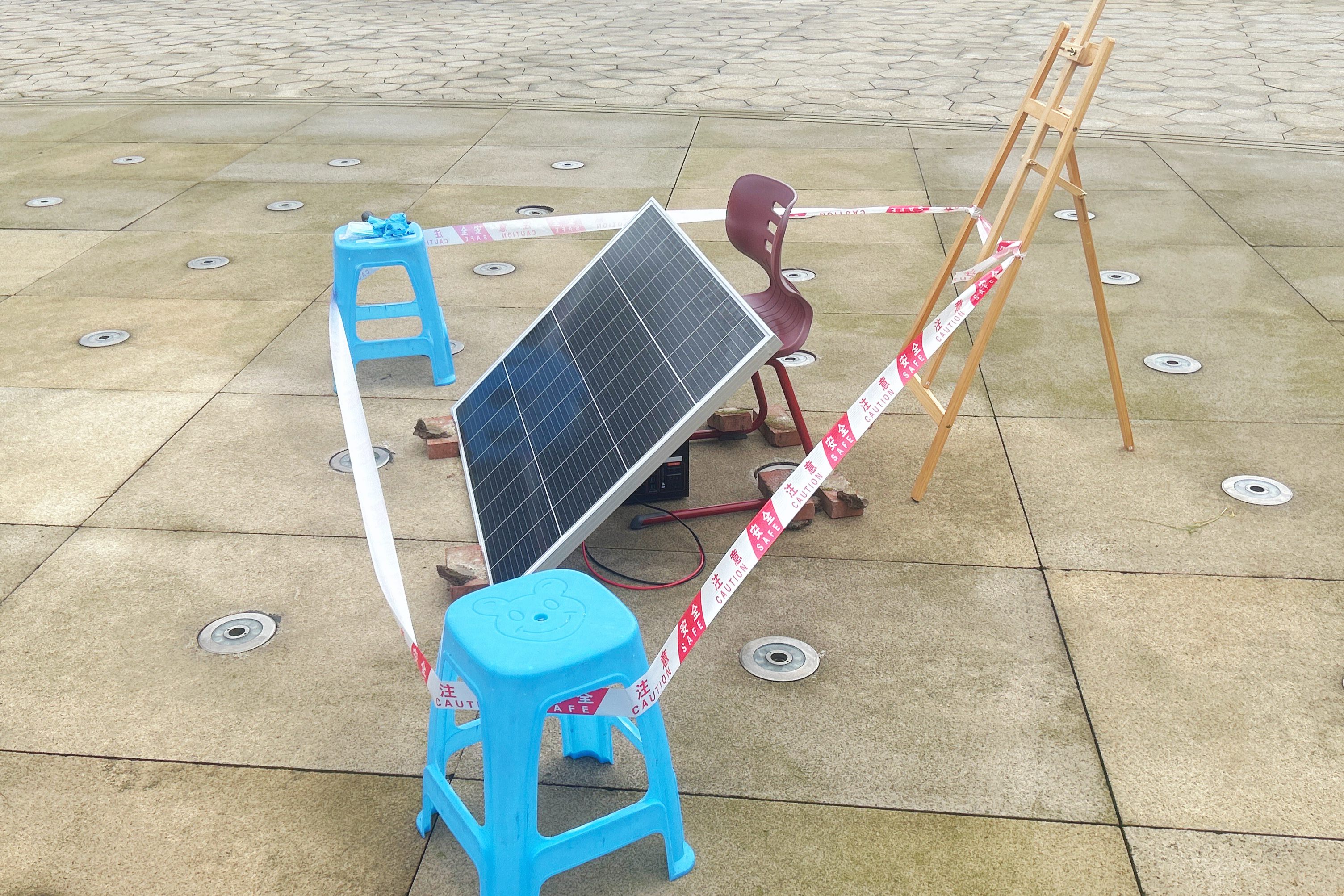
By setting up a solar panel in the school, measuring its electricity generation rate and comparing the cost of their power generation with the current cost of electricity used by the school, George C concluded that while photovoltaic systems can be implemented in educational institutions, the substantial initial investment cost may impede the direct utilization of solar panels, and the economic benefits can only be realized over a long period of time.
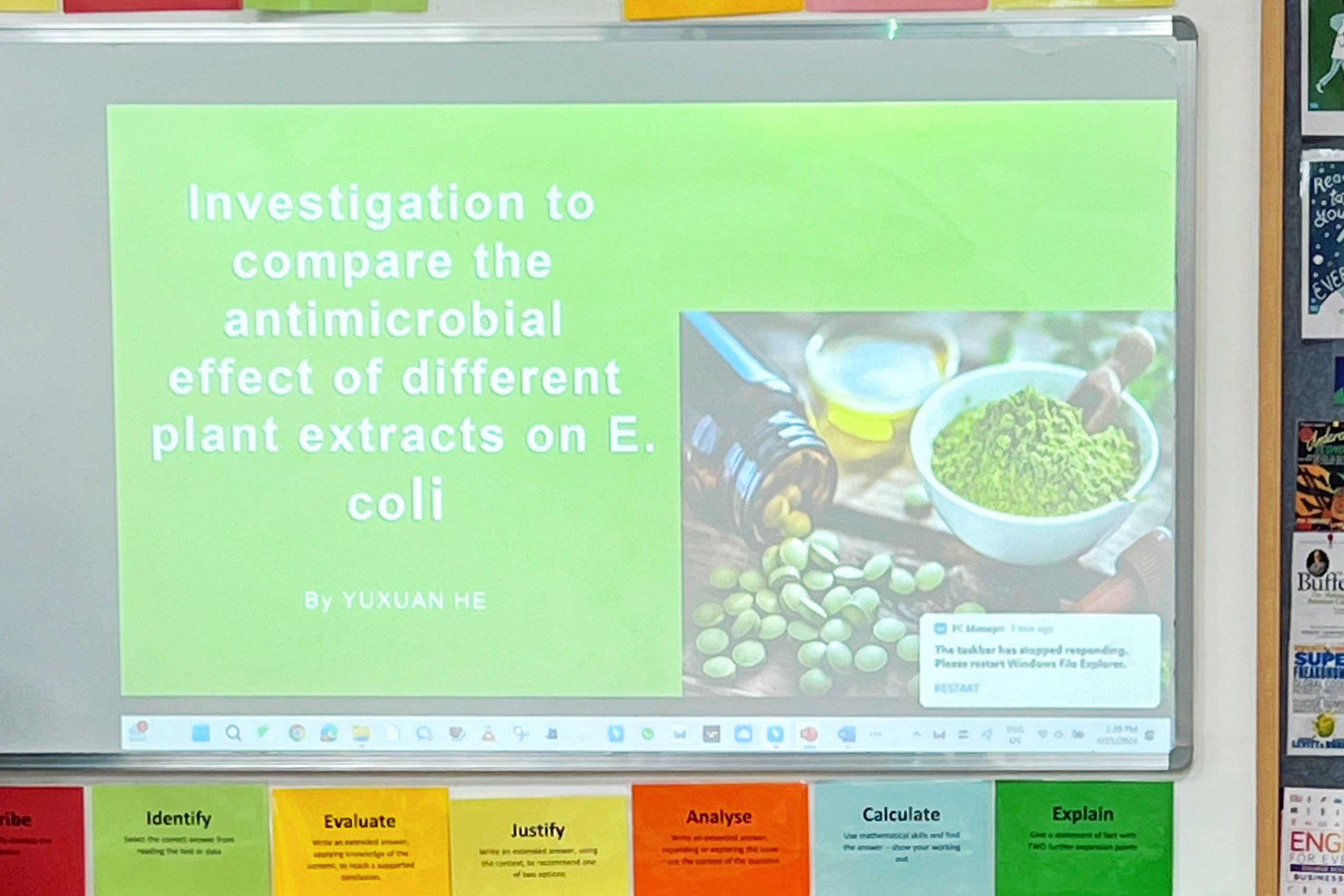
Sylva H's research focussed on investigating the antimicrobial effect of different plant extracts on E. coli. Considering the increasing resistance of bacteria to many current medicines, she set out to investigate and compare whether plants could be used as a source of new antibiotic medicines. She identified five plants, Huang Teng (Fibraurea recisa Pierre), Turmeric (Curcuma longa), Oregano (Origanum vulgare), Garlic (Allium sativum), Grapes (Vitis vinifera). She conducted extensive research on these plants and developed her research aim, research question, hypothesis, and objectives.
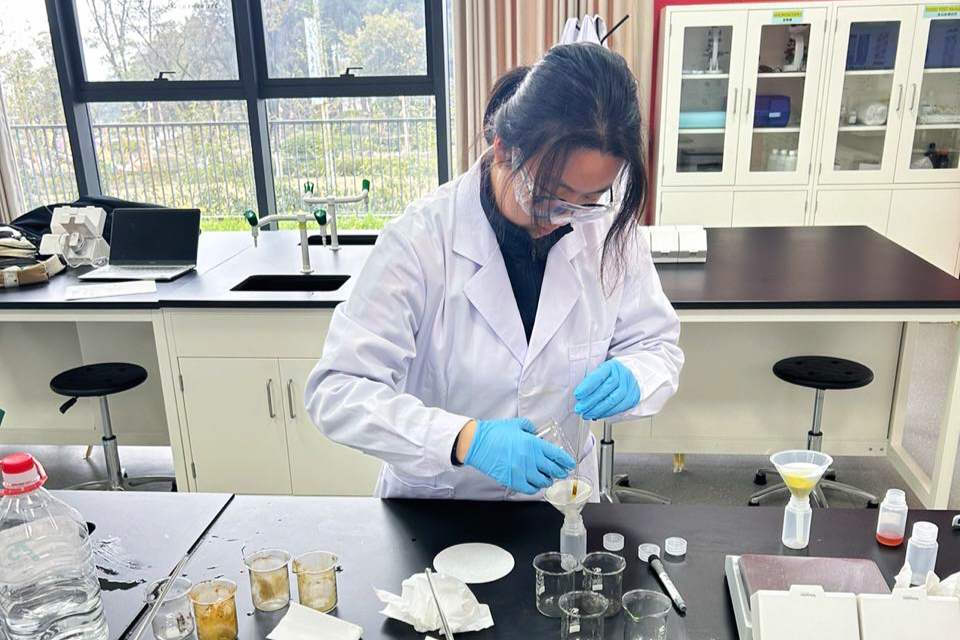
She compared the antibiotic activity of these extracts by extracting the active ingredients from the plants. The results of the experiment showed that both turmeric and oregano had antibacterial activity against E. coli. This provides evidence that plant extracts can be used as a source of new antibiotic medicines.
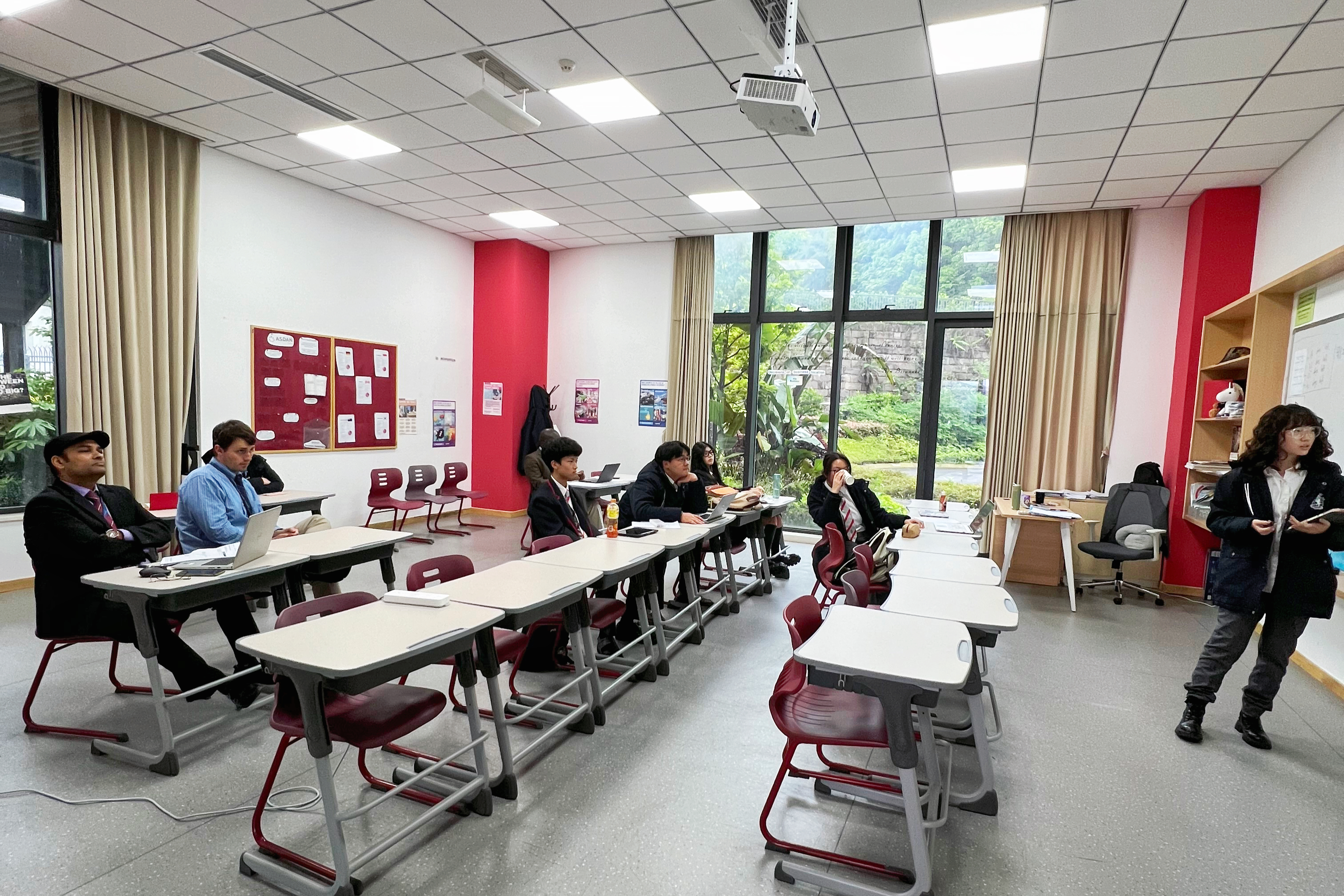
Estelle H's research topic was "The impact of the rising e-sports industry: From a stakeholder perspective". She analysed the impact of the development of the e-sports, examined the differences between traditional sports and e-sports and compared the ratings.
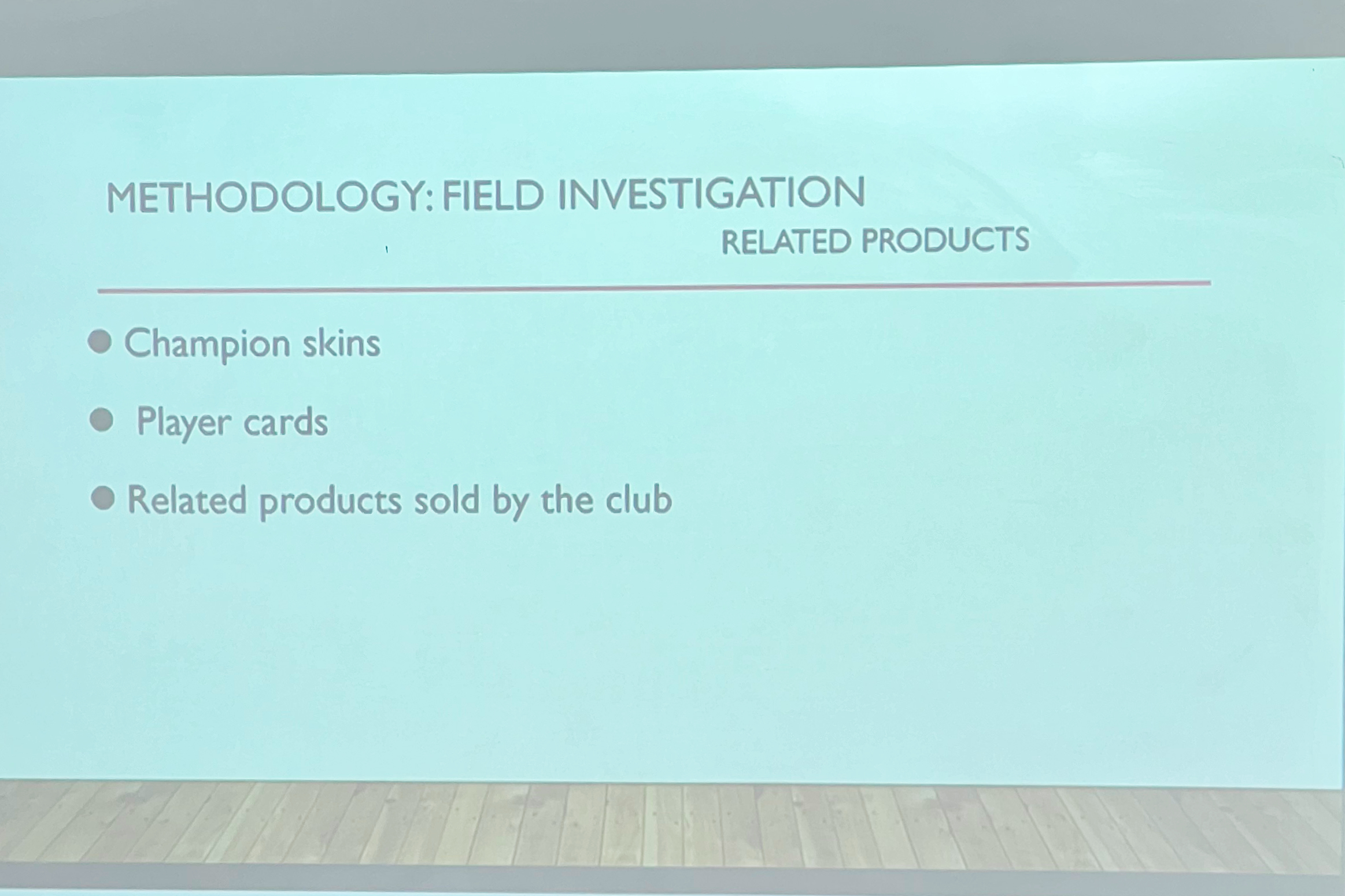
In addition to this, she went to a e-sports event to do field research and interviews to study the business model. Taking a company as a case study, she found its development and operation model from its inception to the present and found out the factors affecting its development. She also analysed the challenges faced by the e-sports industry, including the new technologies, finding investors, managing stakeholders and updates.
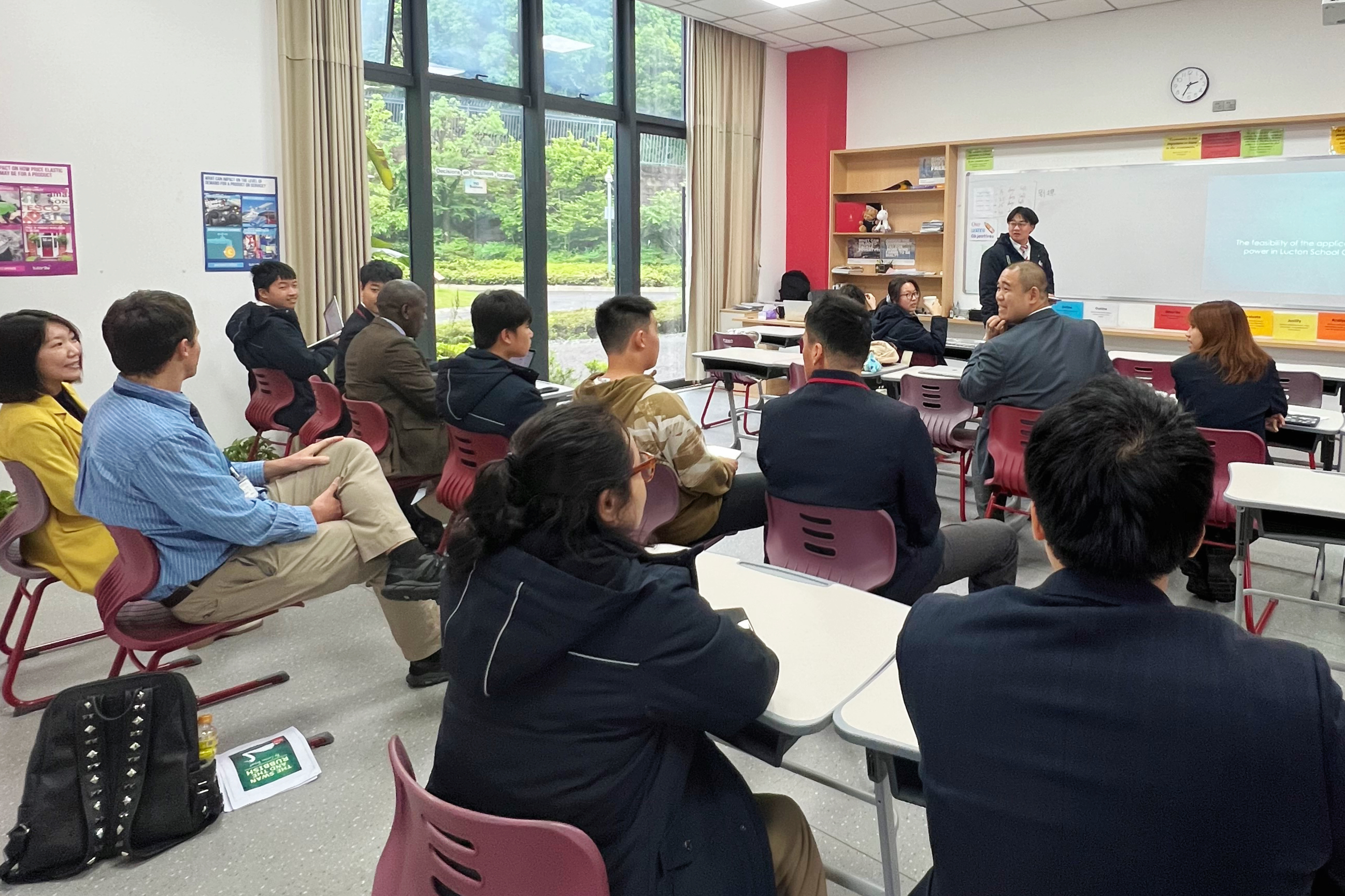
Students eagerly stepped into the spotlight, presenting their findings to a diverse audience. This audience, comprising peers, educators, and members of the staff, eagerly engaged with the presentations, demonstrating a genuine curiosity and enthusiasm for the topics. The culmination of each presentation was marked by dynamic question and answer sessions, wherein the audience seized the opportunity to delve deeper into the projects. Through thought-provoking inquiries and insightful dialogue, the audience actively contributed to the collective learning experience, fostering an environment of intellectual exchange and collaboration.

The success of Lucton School Chongqing's International EPQ programme is the result of the hard work of the students and the unwavering support of the academic team. The International EPQ programme has helped students to develop their ability to research and design scientific experiments, to improve their skills in writing, communication, planning and time management, and to broaden their curiosity and understanding of science.

